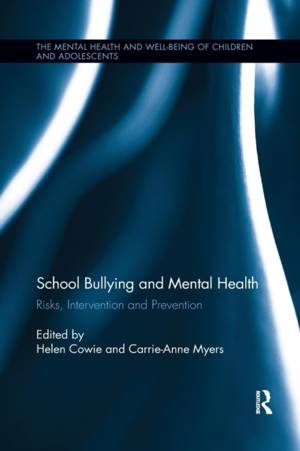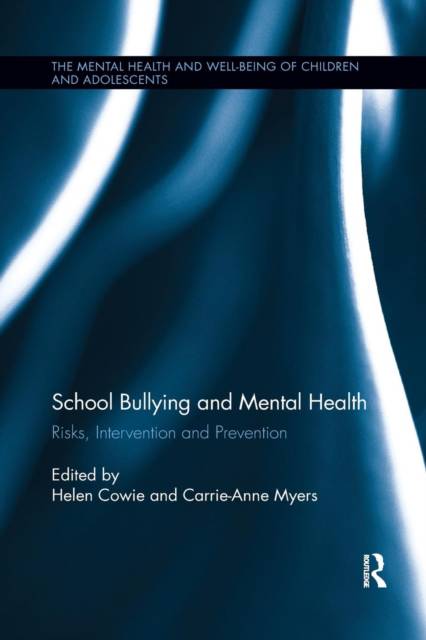
- Afhalen na 1 uur in een winkel met voorraad
- Gratis thuislevering in België vanaf € 30
- Ruim aanbod met 7 miljoen producten
- Afhalen na 1 uur in een winkel met voorraad
- Gratis thuislevering in België vanaf € 30
- Ruim aanbod met 7 miljoen producten
School Bullying and Mental Health
Risks, Intervention and Prevention
Omschrijving
Bullying amongst young people is a serious and pervasive problem, and recent rapid advances in electronic communication technologies have provided even more tools for bullies to exploit. School Bullying and Mental Health collates current research evidence and theoretical perspectives about school bullying in one comprehensive volume, identifying the nature and extent of bullying and cyberbullying at school, as well as its impact on children and young people's emotional health and well-being.
There are many negative consequences of bullying, and children and young people who have been victimised often suffer long-term psychological problems, such as increased levels of anxiety, depressive symptoms, social isolation, loneliness and suicidal ideation. Perpetrators of bullying also have a heightened risk of experiencing problems such as anxiety and depression, as well as eating disorders and antisocial behaviour. Founded on rigorous academic research, this important book tackles the negative consequences of bullying, and bullying culture itself, by examining the social and cultural contexts that perpetuate such behaviour from childhood through adolescence and potentially into adulthood.
Containing contributions from an international team of authors, this book explores current interventions to prevent and reduce school bullying and to alleviate its negative effects on the mental health of children and young people. In-depth discussion of the profound implications of this research for researchers, practitioners and policymakers makes this book essential reading for those interested in bullying culture and the mental health and well-being of children and adolescents.
Specificaties
Betrokkenen
- Uitgeverij:
Inhoud
- Aantal bladzijden:
- 260
- Taal:
- Engels
- Reeks:
Eigenschappen
- Productcode (EAN):
- 9780367190187
- Verschijningsdatum:
- 3/01/2019
- Uitvoering:
- Paperback
- Formaat:
- Trade paperback (VS)
- Afmetingen:
- 156 mm x 234 mm
- Gewicht:
- 367 g

Alleen bij Standaard Boekhandel
Beoordelingen
We publiceren alleen reviews die voldoen aan de voorwaarden voor reviews. Bekijk onze voorwaarden voor reviews.










